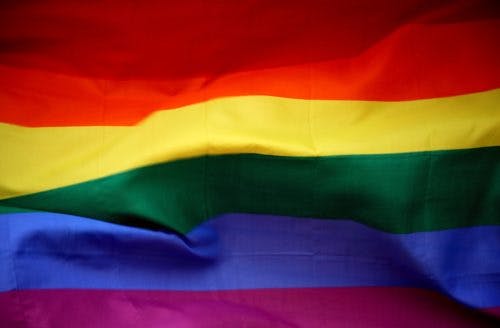- Home
- Resources
- Family Dynamics
- Article
Come Out Comfortably

So you’ve realized you identify as LGBTQIA (Lesbian, Gay, Bisexual, Transgender, Questioning, Intersex, or Asexual). This is a big part of who you are, and now you’ve got to decide how to include your loved ones in this major revelation.
It’s important for loved ones to understand your identity, but this new information may lead some to assume your boundaries have been lifted, or that inappropriate reactions are somehow justified. Here are some ideas for how to share this personal revelation, while avoiding as much discomfort as possible.
Before Sharing:
Decide whether this is the right time for you.
If you’re worried about overburdening your family, don’t sweat it. As Lisa Moore, Professor of Family and Social Work at St Olaf’s College, shared with Supportiv: “Thinking about the needs of your loved ones is perfectly fine when coming out, but don’t lose sight of the story you want to eventually tell in the process.”
“Thinking about the needs of your loved ones is perfectly fine when coming out, but don’t lose sight of the story you want to eventually tell in the process.”
Mobilize friends
Be sure to have trusted friends on alert to help process the experience or take you in. If you’re younger, you might even consider reaching out to a friend’s parents – they might have more resources and may be able to mediate any reactions from your family, if need be.
Wherever it is, knowing that you have a place of affirmation to return to will be critical to your self-care.
Use Tools
The Human Rights Campaign (HRC)’s Tools for Coming Out is a wonderful resource for coming out, with situation-specific details. They include information unique to various religions, ethnicities, or points on the LGBTQIA spectrum.
Prepare For the Worst
If the pressure or family’s reactions become overwhelming, it’s not going to be easy to find good help in the moment. Make sure you’re familiar with the resources available to you, before going into this potentially emotional situation. And if you’re ever afraid of hurting yourself during this process, please seek and accept help.
One resource is the Trevor Project, which provides crisis support to the LGBTQI community – specifically youth, but all are welcome.
Addressing Potential Roadblocks to Acceptance:
Reluctance to Change
Change is very difficult for some people. Though you shouldn’t have to do all the compromising, it might help to remember that your family members may simply need some time to adjust. You’ve been sitting with this information, perhaps for a while. But upon sharing with them, they will not have had the same processing time.
While you’ll want to understand they need time to adjust, the time in between may prove difficult all the same. Professor Moore notes that it’s appropriate to simultaneously love your family and “prioritize self-preservation.”
Prejudice
When religious or moral differences bar understanding of your identity, you have a choice. Grey-rock the biased family member and politely disagree, or to turn this into an educational moment.
Some religious family members might respond to a discussion on liberal theology, in which religion and mutual respect coexist.
There’s also research evidence that simple contact with a group you’re biased against, reduces that bias. According to the Williams Institute at UCLA, “9 million Americans – roughly the population of New Jersey – identify as LGBT.”
If your family member understands that probably around 1 in less than 30 people they meet identify this way, they may begin to understand that it’s not ‘abnormal.’ And you can remind your family member that even if they don’t intend to be prejudiced, prejudice includes “any attitude, emotion or behaviour towards members of a group, which directly or indirectly implies some negativity or antipathy towards that group” (emphasis added, defined by Jim A. C. Everett) — we can all always try harder. Asking relatives to be aware is not insulting them.
Lack of Awareness
Your family members may simply not understand what being an ally means. After they grasp the general concept, give them tips on being good allies, which could include understanding what language might be offensive to your identity, or being available for chatting, venting, or running interference with less accepting family members.
Feel free to preemptively share with them some examples of unacceptable reactions — this way, you may avoid awkwardly stopping a future conversation to point it out.
Some examples from Wesley Davidson and Jonathan Tobkes, in their guidebook for allies and family of LGBTQIA youth: remind family members not to try to ‘change your mind,’ call your partner a ‘friend,’ or refer to you by something other than your preferred pronoun.
And finally, let them know how important their support actually is. Citing research from the San Francisco State University Family Acceptance project, USA Today argues that positive family reactions can not only improve family health, but actually save lives.
Best of luck, and if you need a place to sort out these feelings and family variables, judgement-free, feel free to come to a Supportiv chat.
Contact Us
For anonymous peer-to-peer support, try a chat.
For organizations, use this form or email us at info@supportiv.com. Our team will be happy to assist you!
